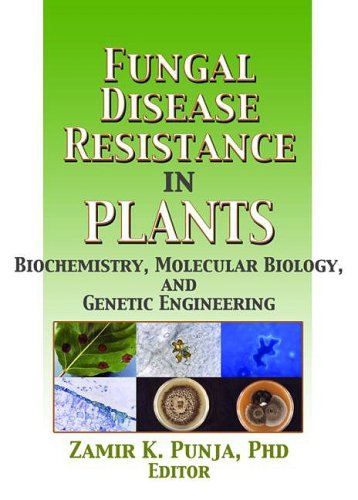

Most ebook files are in PDF format, so you can easily read them using various software such as Foxit Reader or directly on the Google Chrome browser.
Some ebook files are released by publishers in other formats such as .awz, .mobi, .epub, .fb2, etc. You may need to install specific software to read these formats on mobile/PC, such as Calibre.
Please read the tutorial at this link. https://ebooknice.com/page/post?id=faq
We offer FREE conversion to the popular formats you request; however, this may take some time. Therefore, right after payment, please email us, and we will try to provide the service as quickly as possible.
For some exceptional file formats or broken links (if any), please refrain from opening any disputes. Instead, email us first, and we will try to assist within a maximum of 6 hours.
EbookNice Team

Status:
Available0.0
0 reviewsFungal Disease Resistance in Plants: Biochemistry, Molecular Biology, and Genetic Engineering presents the latest developments in crop protection from fungal infection. Leading experts in botany, plant breeding, and plant pathology contribute their knowledge to help reduce and possibly prevent new outbreaks of devastating crop epidemics caused by fungi. With exciting new advances in molecular biology, biochemistry, and genetic engineering, this informative book will help researchers, professors, and students further their understanding of plant defenses.
Fungal Disease Resistance in Plants is your guide to understanding the various barriers that plants have developed through evolution and adaptation to protect themselves from invading fungal pathogens. Defenses include physical barriers such as thick cell walls and chemical compounds expressed by the plant when attacked. Still other plants have acquired proteins that play an important role in defense. This book discusses these evolutionary traits and introduces new scientific techniques to engineer resistance in plants that have no built-in protection.
Fungal Disease Resistance in Plants explores:
cellular expression of resistance to fungal pathogens the hypersensitive response and its role in disease resistance induced plant resistance to fungal pathogens—mechanisms and practical applications pathogenesis-related proteins and their roles in resistance to fungal pathogens signal transduction—plant networks, delivery, and response to fungal infection fungus genes as they relate to disease susceptibility and resistance
Without intense research and scientific study, catastrophic harvest failures due to fungal diseases could cause food shortages, human and animal poisonings, and economic loss throughout the world. Augmented with tables, figures, and extensive references, this state-of-the-art source of research material is valuable for scientists and researchers in universities, private organizations, government institutions, and agricultural organizations interested in plant defenses and future crop preservation.